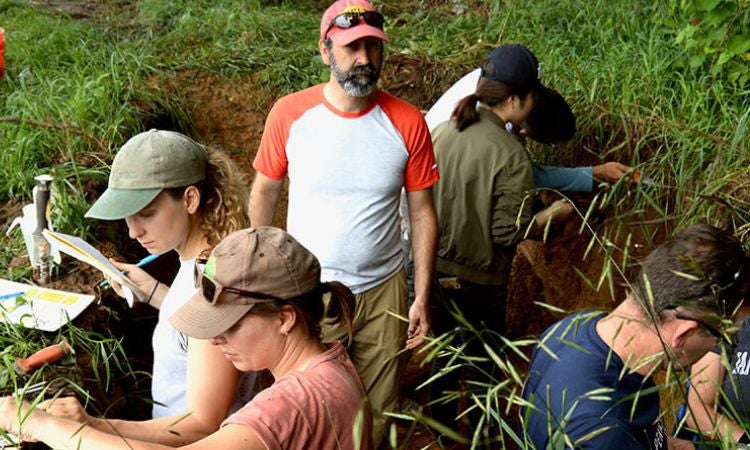VMD | Master of Environmental Studies
Veterinarians are poised to influence policies and practices that directly impact the environment. Graduates of the VMD | MES are trained to recognize the interdependency of animal, human, and environmental health — an understanding referred to as One Health. With the expanding role of veterinary medicine in wildlife and ecosystem health, veterinarians with expertise in environmental science are well-prepared to address global environmental challenges.
About the VMD | MES Program
The MES Program offers a multi-disciplinary approach to environmental study, connecting researchers and practitioners across physical, biological, health, and social sciences with professionals in planning, business, health care, and law. This approach equips graduates with the knowledge necessary to tackle complex environmental issues and specialize in areas like resource management, sustainability, policy, and urban resilience.
Veterinarians are in a unique position to shape environmental policies due to their understanding of the interconnection between animal, human, and environmental health — often referred to as One Health. The MES program will expose veterinary students to peers with similar environmental interests and train them to collaborate in interprofessional teams. Additionally, the program’s capstone will allow veterinary students to engage in research initiatives addressing global environmental challenges.

Program Curriculum
Independently the MES is a 12-course unit degree and the VMD is a four-year degree program, consisting of a two-year core course curriculum followed by a 1.5 to two-year clinical course curriculum — equivalent to approximately 64 credit units, including clinics. In this combined degree format, students complete nine courses in the School of Arts and Sciences (SAS) and three courses that fulfill MES requirements during their VMD education. The VMD|MES student is in residence in SAS for up to three summer semesters of the dual degree program and in Penn Vet for eight semesters.
- Of the nine-course units completed for the MES, Penn Vet will accept three course units at the graduate level toward their elective credits required for the VMD degree
- Of the credits completed in the VMD program, MES will accept three-course units at the graduate level toward the 12-course units required for the MES degree
- This format reduces the typical residency for the two programs from six years to five years and reduces the total required course units from 76 to 70
- For a typical student, the dual degree residency for the two programs will be 10 semesters, although some students may be able to complete the two degrees in nine semesters
Course Grid
Below is the full-time dual degree proposed timeline/sample course curriculum. Please note that specific course listings and requirements may evolve over time.
| Year | Fall | Spring | Summer |
|---|---|---|---|
| Year 1 | Vet first year course curriculum | Vet first year course curriculum | 1 or 2 MES course(s) |
| Year 2 | Vet second year course curriculum | Vet first year course curriculum | 1 or 2 MES course(s) |
| Year 3 | ENVS 601 3 MES Foundation courses | 2 MES courses ENVS 699 Capstone Seminar | 1 or 2 MES course(s) Capstone research |
| Year 4 | Vet 3rd year clinic/electives Capstone research | Vet 3rd year clinic/electives Capstone research | Vet 4th year clinics/electives |
| Year 5 | Vet 4th year clinics/electives | Vet 4th year clinics/electives |
About the Capstone Project
During the first spring semester of the program, each student selects a capstone project, which is an independent research exercise that demonstrates the student’s mastery of the subject matter. For the VMD | MES dual degree, the capstone project will be related to veterinarian medicine and the environment and can be related to the student’s clinical work.

VMD | MES Application Details
Dual degree applicants must apply for and be accepted independently into each program. Applications for both VMD and MES will specifically request if the applicant intends to apply to the VMD | MES dual degree. However, Penn Vet students may apply to the MES degree and the dual degree program as late as the end of their second year. Applications are reviewed separately by the admissions committees for each program.
Acceptance
Acceptance into one program of the dual degree does not guarantee acceptance into the other program. Once the student is admitted to both programs the dual degree program will be initiated.
Financial Aid
All dual degree students are eligible for scholarships and financial aid as per policies associated with their home schools.
